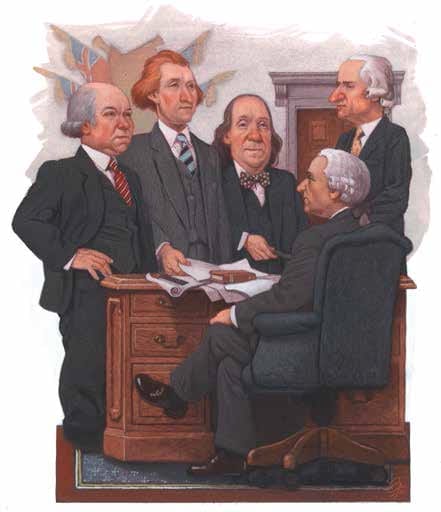Let’s not kid ourselves. The United States is not a democracy. Our Constitution is broken. Our legislative and executive branches of government are broken. Recent presidents have expanded the power of the executive branch to the detriment of the other branches of government. I believe most deserved impeachment. Vested interests in the form of corporations and lobbyists have sullied the integrity of the legislative branch to the point of corruption, inbreeding and insulation from the people of the country. Not a single current member of Congress deserves to remain in office.
It seems that money determines who is elected and what policies are carried out. Even if voting mattered, a majority of Americans elect not to vote.
As to my own voting record, I have voted more Republican than Democrat, for the likes of Ike, Nixon, Reagan and George H.W. Bush. I have come to realize, however, that it does not matter who is elected.
To rectify these woes, I believe that a revised Constitution is the answer. We can look for precedent to America’s second revolution, the Constitutional Convention of 1787.
Change was as absolutely necessary then as it is now. The Articles of Confederation failed to initiate a workable form of government. The federal government did not have the power to tax and could not regulate foreign or domestic commerce. No federal judiciary was set up. Its greatest weakness was that the Confederation was given no means to enforce such powers as granted. Shay’s Rebellion in Massachusetts in 1786 had a great influence on public opinion. When Massachusetts appealed to the Confederation for help, Congress was unable to do a thing.
The Constitutional Convention, held from May 25 to September 17, 1787, was truly, as author Catherine Drinker Bowen so aptly put it, “a Miracle in Philadelphia.” James Madison, George Washington and so many of the Founding Fathers fashioned a document of compromise and brilliance, which served us well for 200 years.
But now it is in disarray. Amendments would be too large and would take too much time to ratify. The sitting Congress could undertake the assignment, but it is too committed to the status quo, too political to make the necessary changes.
The Constitutional Convention of 1787 was called in a legal and reasoned way. A second Constitutional Convention should be called in the same legal and reasoned way.
The states ought to each send two delegates to a convention at the Constitution Center of Philadelphia in May 2014—for the sole and express purpose of revising Articles I and II of the Constitution, writing a new article on the duties of citizens, and rendering the federal Constitution adequate to the exigencies of government and the preservation of the Union.
What are these immediate and necessary changes that this second Constitutional Convention needs to offer to the states for ratification? Let me enumerate them:
Article I — The Legislative Branch
Public funding of elections; no private contributions.
Limit length of campaigns; start after Labor Day.
Do away with the Electoral College.
Make room for more major political parties.
Term limits for both houses of Congress.
No earmarks. No lobbyists.
Independent counsel instead of an ethics committee.
Demand a declaration of war in every instance of armed conflict.
Repeal the Patriot Act.
Bring back the draft. Have all primaries at the same time.
Article II — The Executive Branch
Limit the power of the executive branch.
Demand a declaration of war for all armed conflict.
No possibility of pre-emptive attack.
The end to signing statements; either you sign a bill or you veto it.
Accountability for executive inefficiency and fraud.
More independent counsels.
New Article — The Citizens of the United States
At 18, everyone will serve the country for two years.
At 18 and thereafter, everyone in the country must vote in the primaries and in the general elections every two years or:
Pay a fine.
Face time in jail.
At 18 to age 80, everyone in the country must be in the jury pool or:
Pay a fine.
Face time in jail.
Age 40 to age 60, everyone in the country must serve four years in elective government at the federal, state or municipal level (to avoid a
permanent political cadre).
Having married into a Quaker family, despite my military service, I am totally opposed to unnecessary wars. I do not believe in undeclared or pre-emptive wars. The draft would solve this critical problem because the youth of America will not tolerate serving in unnecessary wars.
Most important of these changes is perhaps the necessity of public financing of all elections, because the special interests and the military-industrial complex control our Congress and our country. The private money spent on elections could be better spent on education, infrastructure and other tangible improvements for the greater good. Term limits would also break the grip of the status quo on our legislatures. The need for change is so far reaching and so immediately necessary that something must be done now.
Carl H. Shaifer, WG’57, erstwhile president of the Wharton Graduate Alumni Association, now serves as chair of the Graduate Emeritus Society Steering Committee. He worked for many years in the printing business for The WinchellCo., ending up as president. He currently works in the insurance business for the Hirshorn Co. and in online news publishing as executive vice president of GFNN Inc.

























